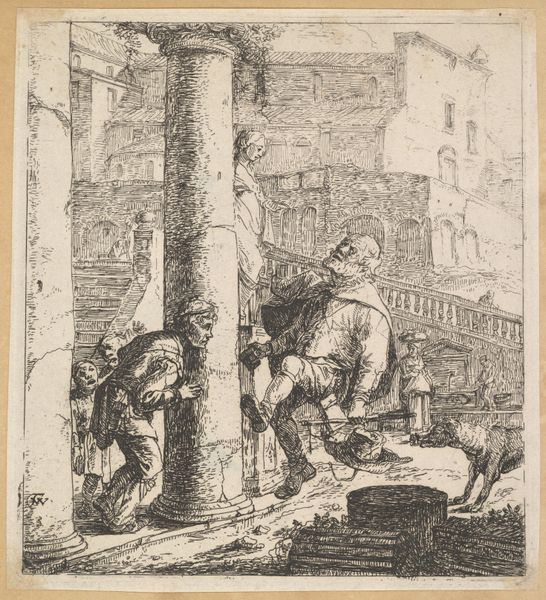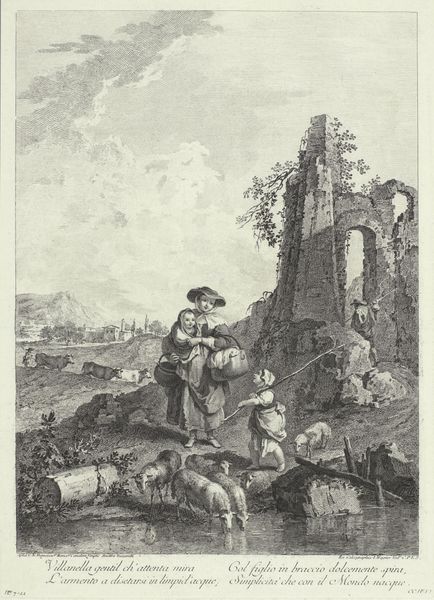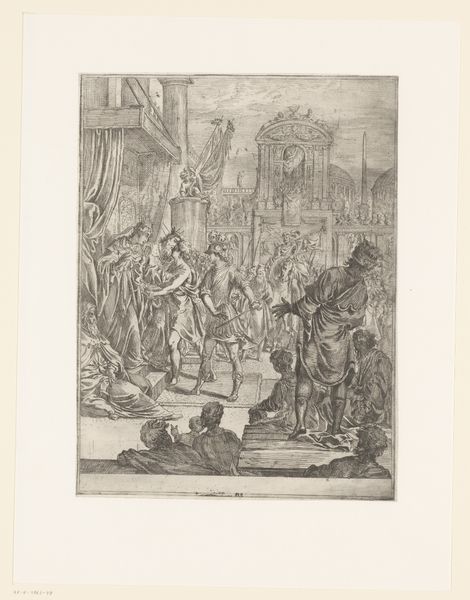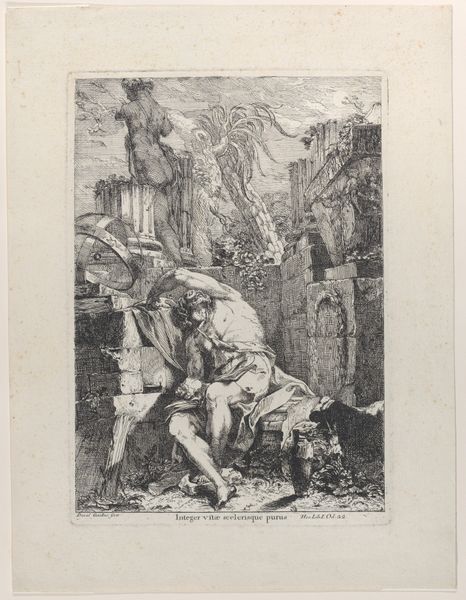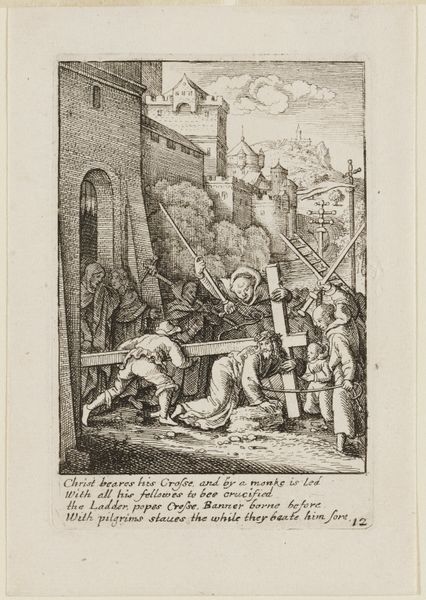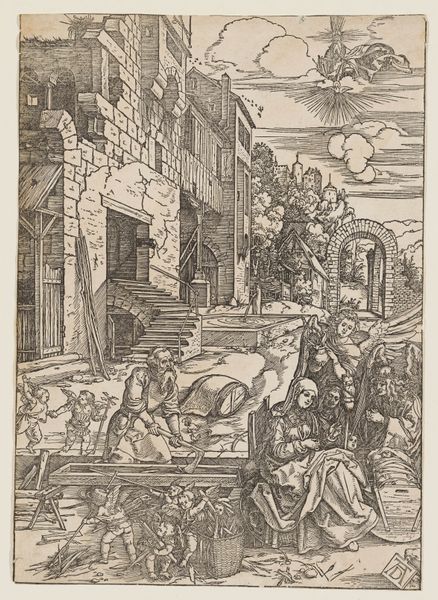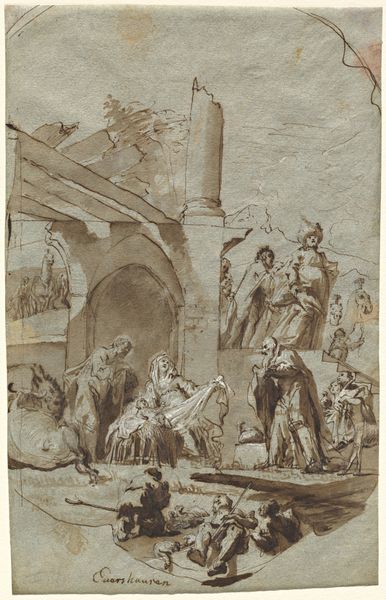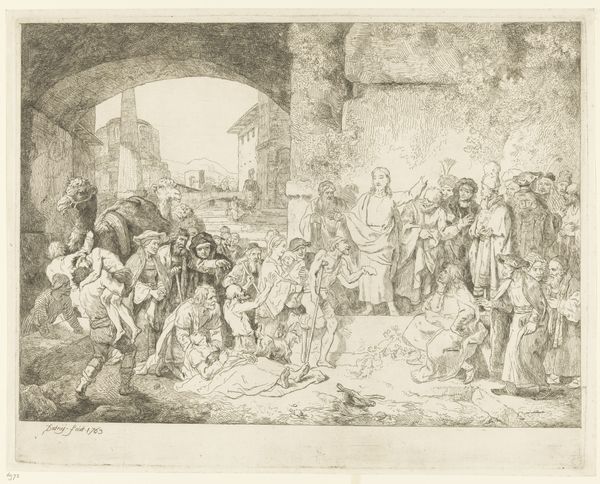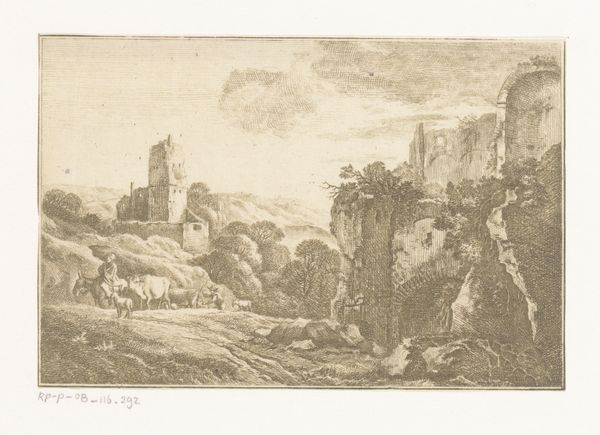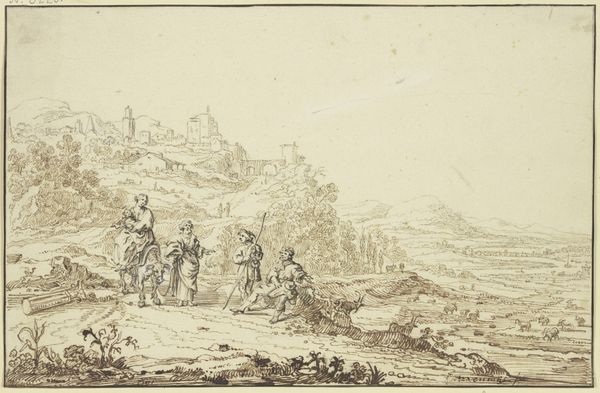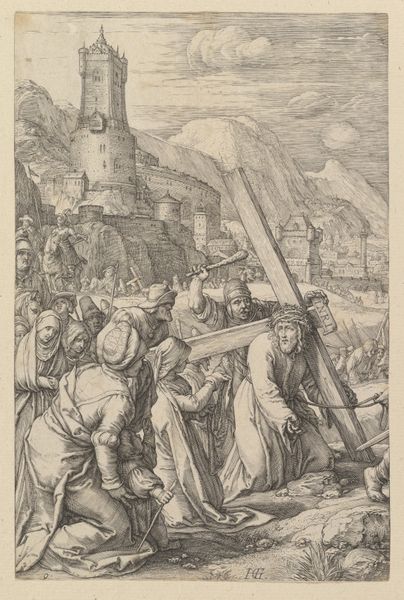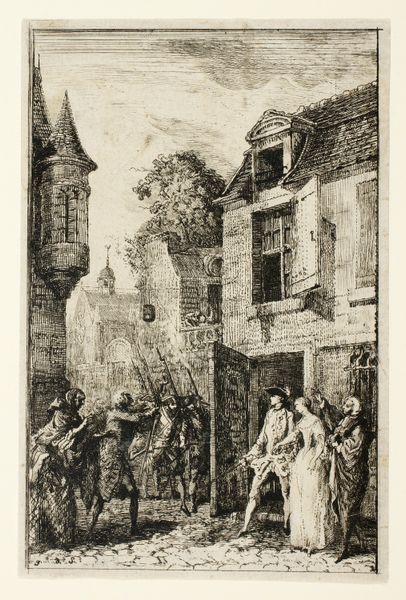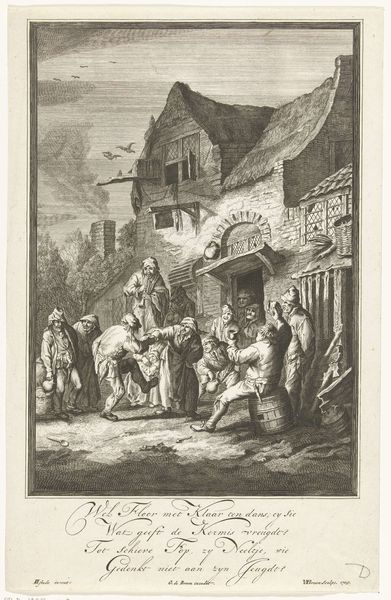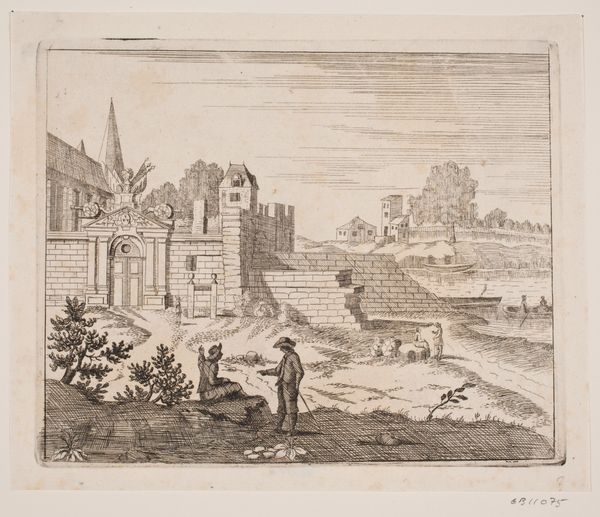
Lazarillo Stealing Grapes from the Poor Blind Beggar 1610 - 1677
0:00
0:00
drawing, print, etching
#
drawing
#
baroque
# print
#
etching
#
dog
#
landscape
#
figuration
#
cityscape
#
genre-painting
Dimensions: 13.1 x 12.0 cm
Copyright: Public Domain
Editor: We're looking at Thomas Wijck's etching, "Lazarillo Stealing Grapes from the Poor Blind Beggar," made sometime between 1610 and 1677. It feels almost like a snapshot, capturing a moment of everyday life. What stands out to you when you look at it? Curator: The work brings forth the question of how societal power dynamics are visually manifested. Wijck’s etching, beyond its apparent anecdotal quality, really highlights the precarity and exploitation inherent in social structures of the period. The city in the background looms large, almost complicit. Do you get that sense? Editor: Definitely, the city feels oppressive, like it's weighing down on them. It also brings to mind how narratives of poverty are often framed… almost blaming the victim? Curator: Precisely. The image asks us to consider: whose story are we being told, and who benefits from this depiction of minor transgression? Are we meant to condemn the boy or question the system that necessitates his actions? Think of how representations of the poor can perpetuate harmful stereotypes. It invites conversations around visibility, representation, and ethics, similar to debates around documentary photography today. Editor: So, it’s less about a simple act of theft and more about the larger socioeconomic forces at play. I never thought about it that way! Curator: Exactly. Wijck offers us not just a scene, but a point of departure for a crucial discussion. It forces us to confront uncomfortable truths about the social order. It’s like an early form of street photography, laden with social commentary. Editor: This has made me look at the image so differently! Now, I see layers of social commentary I completely missed before. Curator: That's the power of art, isn't it? It allows us to examine these societal issues from a historical perspective, informing our present and shaping our future.
Comments
No comments
Be the first to comment and join the conversation on the ultimate creative platform.
